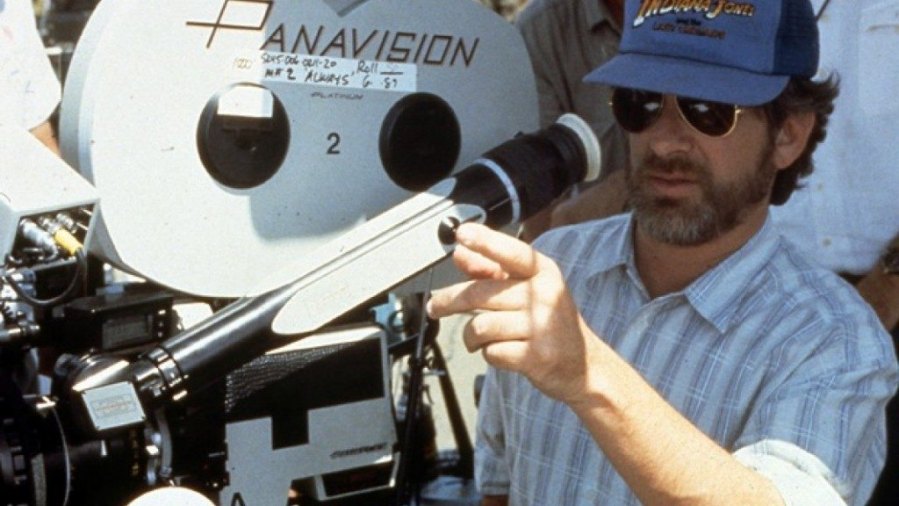I’ve always found people cribbing about having watched a movie that made them hate their own existence in the universe. Goofing up once in a while is quite understandable but if you find yourself being exposed to cinematic tortures on a more frequent basis, then you clearly need help and that’s where we come. Cinema is subjective. Someone’s treasure might be your trash and vice versa. And learning to live with disagreements is the most critical element in a cinephile’s journey as it helps for a healthier and more complex discourse on cinema. But there are films that are mere marketing exercises or just poor quality entertainment. These are films mostly made with the sole intention of multiplying investments and as a movie lover, I can say with conviction that they are beneath the dignity of your time. Here are 10 ways on how to avoid watching bad movies:
10. Read Reviews

This might sound like a cliché but, in my opinion, reviews must be given utmost consideration before watching any movie. The man in the image above, for example, is someone who could dissect, anatomize and see elements in a film that others wouldn’t. Have your own set of go-to critics. Their opinions might differ at times, but most of the time they are right. Great movie critics like Jonathan Rosenbaum, Peter Travers and Guy Lodge write in-depth, complex pieces on movies that help you get a good idea and lead you to the right path of the film. Reviews are one of the first and most important elements that rescue you from an impending cinematic garbage.
9. Do Not Always Trust the IMDb

As cinephiles, we would all probably unanimously agree to the fact that IMDb did play a key role in fine-tuning our taste in the movies. IMDb, as the name suggests, is an Internet Movie Database of Information related to films, television programs, etc. Films can be rated by users on IMDb on a scale of one to ten. And the IMDb top 10 list boasts of some very fine films but to think that IMDb can be used as a base for judging a film or to even regard the site’s rating system or reviews as authentic judgement would be incredibly naïve. And what’s worse? There are films teetering on the edges of mediocrity that manage to gain a superior rating on IMDb, thanks to the films’ popularity and supreme marketing techniques. A group of fanboys could come together and vote up a film that is downright bad in various cinematic aspects which take away the reliability of the site’s judgment. The IMDb rating system is primarily based on the popularity of the films and is never a parameter for judging the quality of the films.
8. Research Before You Watch

A thorough research on the film you are looking forward to watching would do no harm. Researching a film is a complex and laborious process that includes learning about the film, what the film is based on, the style of the filmmaker, the intentions behind the film and so on and so forth. Get a fair idea about the storyline of the film to see if it is something that even interests you at all in the first place and try and explore the works of its filmmaker or the writer to get a clearer picture of what you’re soon venturing into.
7. Box Office Numbers Mean Nothing

This is a tendency that is very common among masses, especially the Indian moviegoers. The psychological perception of a film that failed at the box office being a “bad” film and vice-versa is something that needs to wiped out. A commercially successful film indicates that more number of people have seen it at the cinema. But does that always speak about the quality of the film? The answer is a big NO. There are numerous factors that play a key role in determining the box office success of a film. Extensive promotions, money spent on advertising and promotion, presence of star power are critical to the film’s commercial success. I genuinely hope most people are not oblivious to the fact that some of the greatest films in the world have been miserable at the box office. Quality of a film is beyond numbers and statistics. Cliched as it sounds, true it is though.
6. Beware of the Trailers

Trailers are nothing but promotional tools used to give advance publicity to the film. It is impossible to curb the excitement when a film that you’ve been anticipating since a long time, has got its trailer released. And there is absolutely no harm in checking out the trailers but what’s important here is to not get carried away by the flamboyance of it as trailers are highly deceptive weapons. Trailers, these days, rarely present a true picture of what the film is all about and has become a mere marketing exercise. A better trailer indicates more money backed by the production house and never a good movie.
5. Look Beyond Mainstream

This is a universally applicable aspect and a significant factor that influences the quality of the films you see. The inquisitiveness to look beyond mainstream cinema is perhaps the essential element in a cinephile. Mainstream cinema around the world, as we all know, is largely targeted at the common masses. But the lure of money and the undying demand to resort to the lowest common denominator have made mainstream cinema more susceptible to producing films that humiliate the powers of human intellect. Look out for more exciting, passionate independent filmmakers who audaciously experiment with their craft and you would rarely find yourself cribbing about how the quality of cinema has deteriorated.
4. Discuss With Fellow Cinephiles

There is nothing worse for a cinephile than being stuck in a group that watches films merely for entertainment purposes or as a way to kill time. Look out for people with similar taste, if you aren’t surrounded by any, and discuss with them the films you’re going to watch. Have a detailed, spoiler-free analysis on the film with your peers to ensure that what you’re walking into wouldn’t be a 120-minute cinematic torture that makes you hate your existence in the universe. Consider movie recommendations from trustworthy people (mostly cinephiles with similar taste) or people who are on the same wavelength as you are and there are very remote possibilities of you being disappointed with the film.
3. Watch it in the Right Mood

As I said earlier, cinema or for that matter any form of art is extremely subjective and someone’s treasure might be your trash and vice-versa. But sometimes maybe you are not in the right mood to watch a film. Let’s say if I were in the mood to watch a romantic film but end up watching ‘Taxi Driver’ instead. I’d probably go on to hate that film which is quite unfair. Go through the aforementioned points, do your research and see if you are in the right mood to sit through the film. Maybe your state of mind could be the culprit in unfairly trashing a film which might turn out to be a decent affair on a second viewing.
2. Purpose Behind Watching Cinema

I am just trying to be as less preachy as possible but this is a point that I find hard to ignore here. For some people, cinema is the best form of entertainment while for some, it’s well beyond that. This is, of course, a personal choice and a very complex one but what ultimately matters here is the quality of the films that you get yourself exposed to. Great filmmakers like Steven Spielberg, Robert Zemeckis, Christopher Nolan have enthralled us with the magical blend of entertainment and art in their films. But several other opportunistic filmmakers exploit the viewers’ demands and more often than not, churn out films beneath the dignity of our precious time and minds. Look out for filmmakers who make the most exciting pieces of cinema, broaden your perceptions of what cinema could be, get yourself exposed to films across the world and it’s highly unlikely that you strike a wrong chord.
1. Know Your Filmmaker

This is undoubtedly the single most important aspect that plays a crucial role in determining your fate at the cinema. Before the ship sails, know your captain well and get acquainted with his style and explore his previous ventures. This helps a lot in gaining an insight into what the filmmaker looks to achieve with his film which in turn provides a concrete view of the film’s intentions that play a key role in determining the quality of the film. To err is human. And great filmmakers fumble on many occasions too but even their bad films are, more often than not, a cut above the rest. Filmmakers who make movies with the sole intention of multiplying their investments and cater to the lowest common denominators are the ones guilty of cinematic tortures and they are avoided at best.

